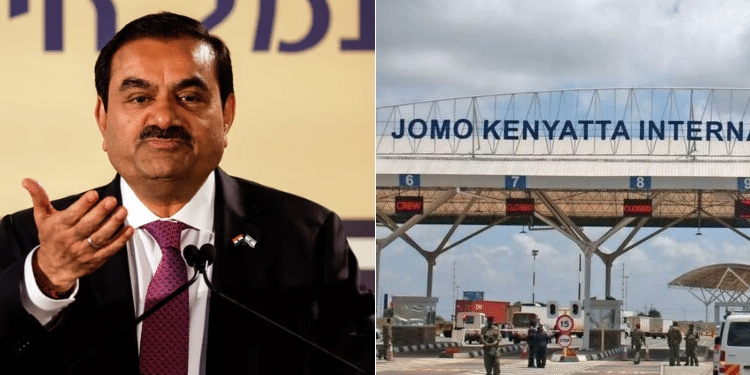A fresh legal battle has emerged over the planned lease of Jomo Kenyatta International Airport (JKIA) to India’s Adani Group, with claims that the company will use the airport’s assets to secure loans instead of investing its own funds.
The lawsuit, filed by activist Tony Gachoka and the Mount Kenya Jurists, argues that the government will hand over JKIA’s title deed to Adani Group, making the airport collateral for loans.
The petitioners warn that this exposes Kenyan taxpayers to significant financial risks.
“The deal hands over JKIA’s income and assets to Adani, enabling the company to secure loans without committing any of its own capital,” lawyer Ndegwa Njiru told Justice Bahati Mwamuye.

Indian-based tycoon Gautam Adani. Photo: The Star Source: Facebook
The case, now the third filed against the lease, has raised serious concerns about transparency and public accountability.
According to the petitioners, Adani’s plan relies on JKIA’s revenue streams and infrastructure to attract financing. A UAE-registered firm, Global Airports Operators LLC, linked to the Adani Group, is central to the deal, further complicating the ownership structure.
Transport Cabinet Secretary Davis Chirchir recently told Parliament that JKIA generates Sh19 billion annually, sparking concerns that the airport’s revenues could now serve as repayment for Adani’s loans.

Adani Group boss (L), JKIA (R) Photo: Citizen Digital Source: Facebook
The petition also reveals that the concession agreement would be governed by English law, preventing Kenyan courts from handling disputes related to the deal. Petitioners argue this arrangement undermines national sovereignty and leaves the public vulnerable.
Critics accuse the government of prioritizing short-term financial gains at the expense of long-term sustainability. The petitioners urge the court to issue immediate orders blocking the signing of the concession agreement, warning that Kenyans will ultimately bear the burden of the deal.
As the legal challenge unfolds, stakeholders remain divided over the implications of allowing a foreign entity to profit from one of Kenya’s most valuable public assets without making direct investments.



